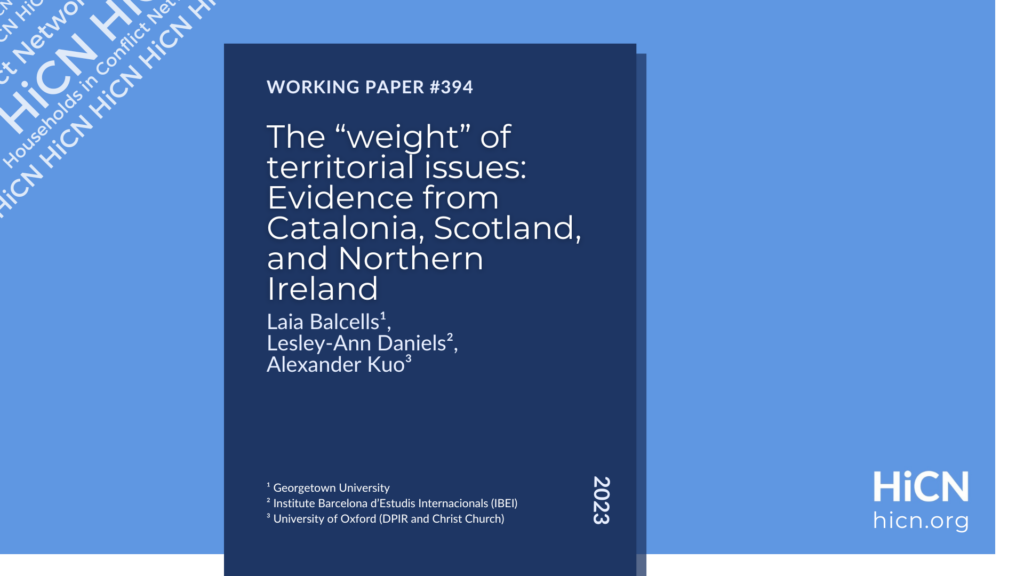
Territorial debates complicate the politics of the affected regions, as parties must decide whether to compete on a territorial dimension alongside others, such as redistribution, that have longstanding importance. Yet, empirical evidence is scarce regarding how much voters actually weigh territorial issues against others, and on which issues voters most reward congruent (like-minded) candidates. We theorize that in contexts when such issues are salient, they have a greater weight relative to others due to their identity-oriented nature. We present evidence from a conjoint experiment embedded in simultaneously fielded surveys in three European regions with active territorial disputes: Catalonia, Scotland, and Northern Ireland. We find that individuals’ preferences on the territorial issue matter more than other issues for candidate choice: the reward (punishment) of congruent (incongruent) candidates is greater, and individuals are less prepared to concede on this issue. Our results have broader comparative implications for political competition in multidimensional spaces where territorial disputes are present.